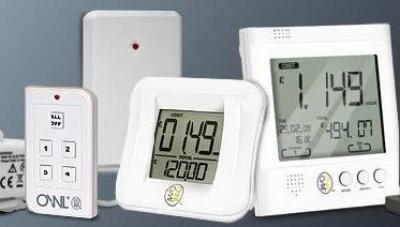HP Admits Smart Grid Security Is An ‘Afterthought’

Rapid roll out of smart grids in the US is jeopardising security, but deployments in Europe and elsewhere have been sluggish, HP says
Tech giant HP has warned that security may have been overlooked in some initial smart grid and metering projects in the initial rush to experiment with the technology.
Speaking at the company’s annual Executive Energy Conference in Dubai this week, Ian Mitton, HP’s utilities industry director and global lead on smart grid technology, admitted that the issue of security had been overlooked in some early deployments.
 Responding to a question from eWEEK Europe UK about similar warnings from security specialist IOActive, Mitton said that security needed to be built in and not bolted on afterwards. “I guess our observation is that primarily security has to be designed in up-front and it is a little bit of an afterthought, and that does concern me in some ways,” he said. “We could be heading for a world where the initial projects that are deployed think ‘Oh my goodness what about security’.”
Responding to a question from eWEEK Europe UK about similar warnings from security specialist IOActive, Mitton said that security needed to be built in and not bolted on afterwards. “I guess our observation is that primarily security has to be designed in up-front and it is a little bit of an afterthought, and that does concern me in some ways,” he said. “We could be heading for a world where the initial projects that are deployed think ‘Oh my goodness what about security’.”
US Stimulus Funding
Mitton said the problem may be worse in the US than Europe, as utilities have a limited amount of time to use stimulus money set aside by the Obama administration to improve energy efficiency and make infrastructure more sustainable.
“In the US now that the stimulus funds have been released and we have seen a run to the tape – so we are seeing a lot of interest there,” he said. “They have to the end of next year otherwise they forfeit their money.”
But despite concerns around security, Mitton also said that interest in a tool HP launched at last year’s Energy Conference in Budapest to deal with the problem hadn’t been a success so far. “It has been slow to take off. There are a number of companies we are engaged with as far as preparation is concerned,” he said. “I think one of the problems is that in a good many parts of the world – projects are not happening fast enough. Smart grid and smart meter projects are slow to take off.”
Mitton’s assessment chimed with warnings earlier this month from Joshua Pennell, president and founder of security company IOActive, who pointed out the short time-frame available for utilities to access a $4 billion (£2.6bn) government fund to roll-out smart infrastructure.
“The crux of the problem in the US is with the American Recovery and Reinvestment Act – they have to spend the money in like 48 months. So they are in a different mode now,” Pennell told eWEEK Europe UK. “If they don’t spend the money then it goes away, so they have to roll out the technology in some state or lose the funding, which is not in their normal mode of operations.”
But while some US states such as California may be rushing to roll-out smart meters, HP admitted that uptake in Europe had been relatively disappointing.
Some of the problem is down to how much hype there has been around the technology which, according to Mitton, is beginning to tail off. Utilities appear to be considering how successful deployments have been before expanding the projects, he said.
“I am not sure where we are on the hype cycle right now. We are getting near the top and potentially peaking out,” he said. “A lot of companies I talk to have run pilots about smart metering and they are getting to the stage now where they have deployed a few thousand meters and now they are stopping.”
Utilities Focused On ROI
Companies are focusing on what returns they can get from potentially long-term projects such as smart meters, Mitton explained. “They are not taking a rest but looking back and saying ‘What mistakes did we make? Can we go any further at this stage? What was the return on investment?’ ” he said.
But when pushed on whether a lack of government subsidies was deterring roll-outs in Europe, Mitton denied that government subsidies were a major factor and said companies were focused on relatively short-term returns. “I think it is all about getting return on investment. I think one of the challenges that utility companies face is there isn’t a clear ROI,” he said.
In line with European law, the UK has committed to roll-out smart meters to every home by 2020, in a move which the government says will help generate jobs.